This book is supported in part by a grant from Furthermore: a program of the J. M. Kaplan Fund.
Second printing
Library of Congress Cataloging-in-Publication Data
Names: Ford, Dionne, 1969- editor. | Strauss, Jill, 1965- editor. | Truscott, Lucian K., 1947- author of foreword.
Title: Slaverys descendants : shared legacies of race and reconciliation / edited by Dionne Ford and Jill Strauss ; foreword by Lucian K. Truscott IV.
Description: New Brunswick, New Jersey : Rutgers University Press, [2019] | Includes bibliographical references.
Identifiers: LCCN 2018046485 | ISBN 9781978800762 (hardcover)
Subjects: LCSH: African AmericansRace identity. | SlaveryUnited StatesPsychological aspects. | RacismUnited StatesHistory. | United StatesRace relations. | SlavesUnited StatesSocial conditions. | SlaveholdersUnited StatesHistory. | African American families. | African AmericansBiography. | WhitesUnited StatesBiography. | ReconciliationSocial aspectsUnited States.
Classification: LCC E185.625 .S58 2019 | DDC 305.800973dc23
LC record available at https://lccn.loc.gov/2018046485
A British Cataloging-in-Publication record for this book is available from the British Library.
This collection copyright 2019 by Rutgers, The State University of New Jersey
Individual chapters copyright 2019 in the names of their authors
All rights reserved
No part of this book may be reproduced or utilized in any form or by any means, electronic or mechanical, or by any information storage and retrieval system, without written permission from the publisher. Please contact Rutgers University Press, 106 Somerset Street, New Brunswick, NJ 08901. The only exception to this prohibition is fair use as defined by U.S. copyright law.

The paper used in this publication meets the requirements of the American National Standard for Information SciencesPermanence of Paper for Printed Library Materials, ANSI Z39.48-1992.
www.rutgersuniversitypress.org
Manufactured in the United States of America
I remember my Great-Aunt Aggie telling my brother Frank and me, Just because youre related to Thomas Jefferson doesnt make you any better than anyone else, so you just keep your mouths shut about it.
I followed that rule for almost fifty years. In all the times we studied the founding fathers in school, from elementary right through high school, I never raised my hand and said I was related to one of them. I went to West Point, which Jefferson founded, and I never breathed a word to anyone that I was the sixth great-grandson of the founder.
Then came 1998. A DNA study was done on the descendants of Jeffersons grandchildren through his long-time relationship with enslaved Sally Hemings, and the results were about to be announced. I called the op-ed editor of the New York Times and asked if he wanted an article about the controversy that was sure to come. What was remarkable about this is that I had written for the Times op-ed page for almost thirty years without telling anyone that I was a descendent of Jefferson. But when I told the editor at the Times that I would be writing my next piece as a sixth great-grandson of the man, all he said was, Wed love that piece, Lucian. No questions about the legitimacy of my claim. No demand to see documentation. They just took me at my word.
Well, I wrote the story for the Times , and the DNA results were announced, shocking the world of Jefferson biographers and historians: at least one, and probably all, of the descendants of Sally Hemings were also descendants of Thomas Jefferson.
A couple of months went by, and the Oprah Winfrey Show called from Chicago, asking if my sister Mary and I would be willing to go on the show with several of our Hemings cousins. It would be the first time we met each other. After we agreed, there were extensive pre-interviews done by Oprah staffers before the show. We were informed that we would be put up in a hotel separate from our cousins. The way they were treating the whole thing gave us the impression that the show would be controversial, even explosive. The descendants of what was perhaps Americas most famous slaveowner would be meeting the descendants of his most famous slave, and sparks would fly!
The show was something else altogether. Mary and I appeared on stage with Shay Banks-Young and her son Douglas, a preacher from Columbus, Ohio. In the front rows of the audience were perhaps ten more descendants of Hemings and Jefferson. Mary and I were on the show alone with Oprah for the first segment. After the commercial break, Oprah brought out Shay and Doug. We embraced and took our seats. There wasnt a confrontation. In fact, it was something more akin to a reunion. The meeting of Thomas Jeffersons two families was way more matter-of-fact than anyone, including Oprah herself, could have predicted.
We were all Jeffersons great-grandchildren, after all.
Toward the end of the show, Oprah whispered to me during a commercial break that she would be asking me the first question when we came back, and it would be a good one. Sure enough, it was. So, Lucian, now that youve met your cousins, what are you going to do?
The truth was, I had no idea. I looked over at Shay and Doug and the rest of my Hemings cousins. It was evident, even from the brief time we had spent togetherand despite the fact that that time was on the biggest daytime television show in the nationthat we had far more in common than any of us could have predicted. Although we didnt know each other at all, the way that we had all been raised was almost unnervingly similar. All of our parents had made the same point to us again and again: just because we were related to Thomas Jefferson didnt make us any better than anyone elseand man, we were not to forget that!


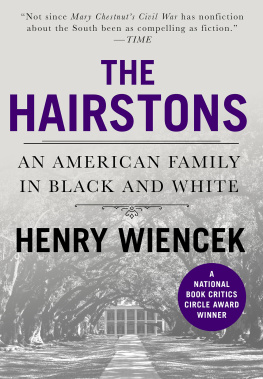
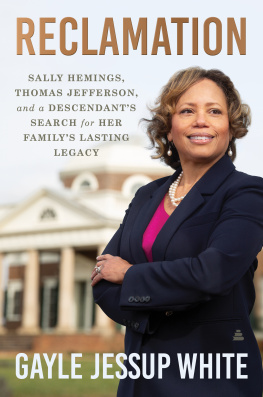
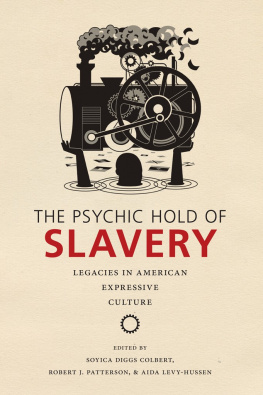
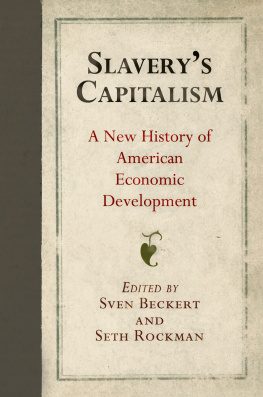
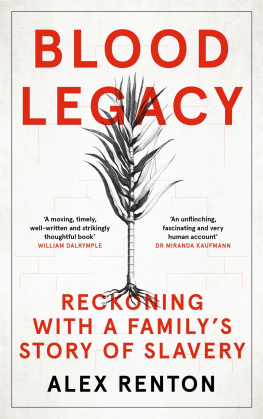



 The paper used in this publication meets the requirements of the American National Standard for Information SciencesPermanence of Paper for Printed Library Materials, ANSI Z39.48-1992.
The paper used in this publication meets the requirements of the American National Standard for Information SciencesPermanence of Paper for Printed Library Materials, ANSI Z39.48-1992.